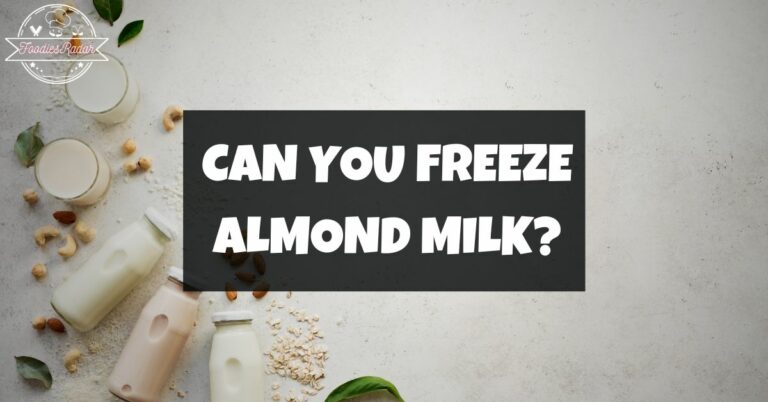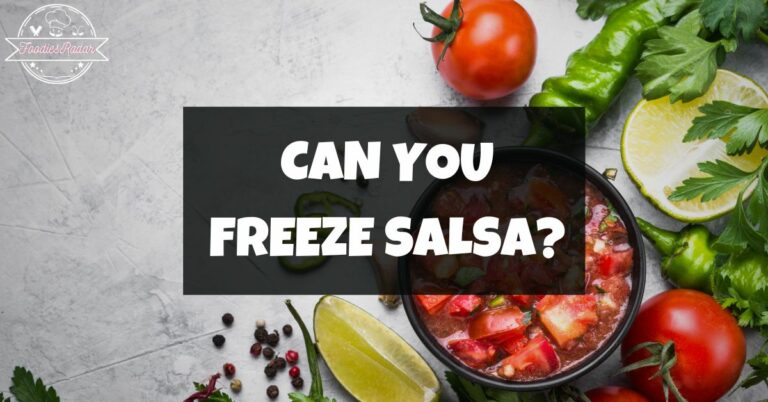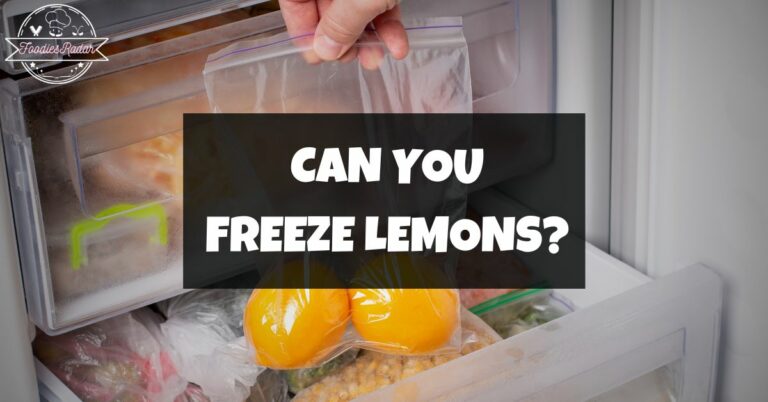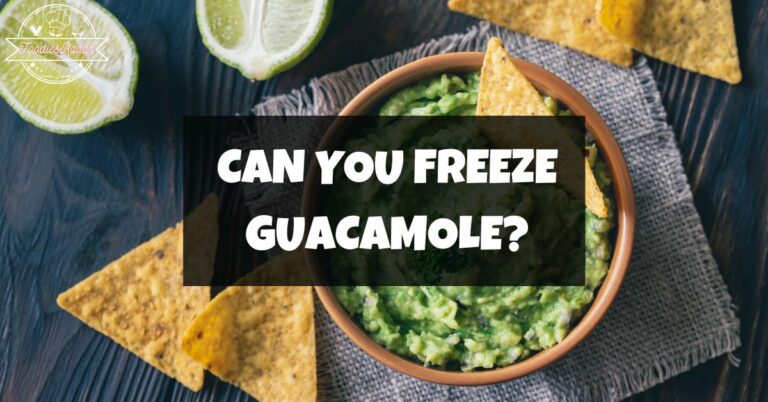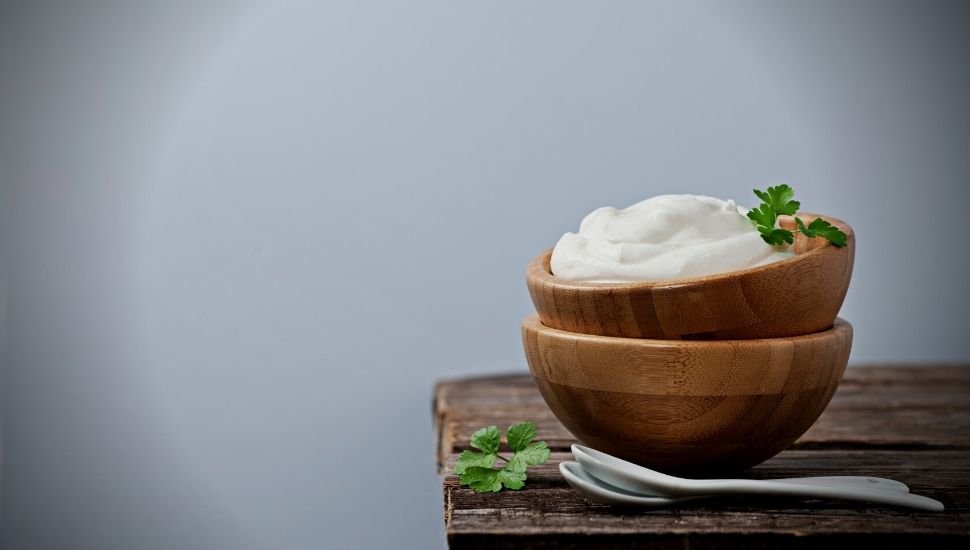
I always only get to savor and utilize half of the sour cream bottle when a recipe asks for it—leaving me with sour cream that may perhaps go to waste.
If that also applies to you, then you must, like me, sit and consider what else to do with it or if it is acceptable to freeze sour cream. Yes, it is the solution.
Similar incidents also occur with other dairy products supplied in containers. Sour cream can be frozen; however, it only works in cooked or baked recipes because of the heavy separation it experiences after thawing. Fresh sour cream is preferable to the packaged kind for most other applications.
The freezing procedure is straightforward, but you must decide how you’ll utilize the cream after it has defrosted before you begin. Here I’ll explain how to properly store and defrost sour cream that’s been in the freezer for a while.
Can You Freeze Sour Cream?
The quick answer is: Yes, sour cream may be frozen. However, only if you use it in cooked or baked meals since once it is frozen, it loses its characteristic creamy quality. Once frozen and thawed, the consistency does vary.
Sour cream’s texture is significantly altered by freezing, so it cannot be used in many recipes. But the separation is a minor concern for many cooking or baking recipes.
As a result, even though it would not be an excellent condiment, it would still be suitable for uses like baking.
Is It Safe To Freeze Sour Cream?
Sour cream may be safely frozen to preserve and store it. However, you should be aware that thawed sour cream should only be used in baking and cooking. It is not recommended to use dips and sauces once frozen and thawed.
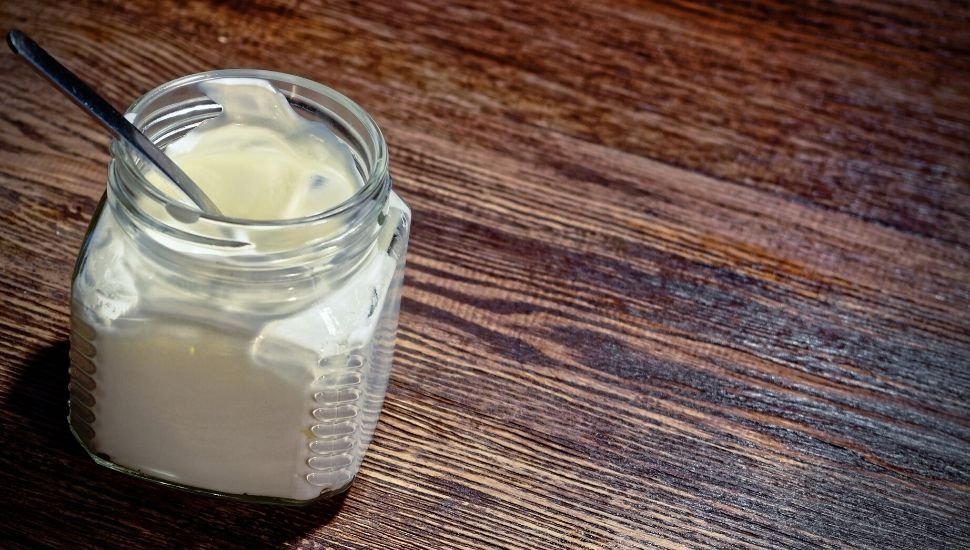
Additionally, only sour cream that is in a container may be frozen. Unfortunately, the sour cream dip that came with the dish you ordered cannot be kept. After usage, it must be promptly discarded.
Nevertheless, freezing sour cream is entirely secure. It may be frozen after being stored in a glass or plastic container.
How To Freeze Sour Cream?
Sour cream may be frozen by putting the whole tub or container in a freezer bag and putting it in the freezer.
Remove the remaining sour cream from its packaging and place it in a dish. Make sure to whisk your sour cream before freezing.
To equally spread the liquid, I do this. I suggest breaking up the sour cream into smaller parts after whipping. You will be able to measure the quantities you need when it’s time to utilize them if you do this.
The solution is to use an ice cube tray. The best choice is an airtight container if you don’t have one.
A freezer bag will serve if you currently need access to an airtight container or an ice cube tray. Put your remaining sour cream into a freezer bag.
Before sealing it tight, dip it into the water to remove extra air or create the appearance of a vacuum-sealed seal.
Let the sour cream freeze, then put it in the back of the freezer. If you put it in front, every time the freezer is opened, it will likely experience greater temperatures. As a consequence, quality is diminished.
What Happens When Sour Cream Is Frozen?
Your sour cream’s flavor won’t alter after freezing and thawing. The taste will continue to be the same as before. When the sour cream thaws, it loses a lot of its creamy texture.
The sour cream will get gritty and soupy, becoming thin and runny. Because of this, it’s best to use it for baking or cooking after being frozen. Due to its texture, there are better choices than sour cream for sauces and dips.
I suggest you utilize the sour cream that is frozen as soon as possible. Keep in mind that sour cream may only be kept frozen for a maximum of six months.
How To Thaw Frozen Sour Cream?
Place the frozen jar in the refrigerator overnight to defrost the sour cream before using it. While the texture may have changed somewhat after that, it is still used in baked products, casseroles, and soups where it won’t be as visible.
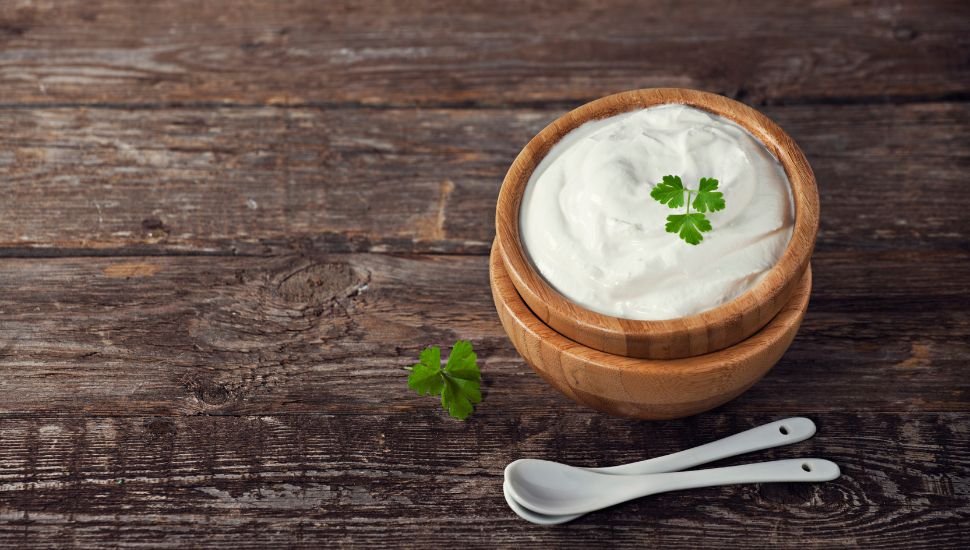
The sour cream may be whipped with a whisk or a hand mixer to get it closer to its original texture after defrosting in the refrigerator.
You might also try whipping the sour cream with a teaspoon of cornstarch to see if that improves its texture and consistency.
How Long Does Frozen Sour Cream Last?
From a food safety viewpoint, sour cream can be frozen solidly forever. However, quality will start to decline after two to three months.
You could detect specific quality declines in taste, smoothness, and texture. This is because freezing causes physical changes in the components of sour cream.
Water expands when sour cream is frozen, causing the liquid to solidify before the fat and other components.
Consequently, the texture could be lumpy, and liquids and solids might separate upon thawing. Just be aware that once frozen, it won’t work for garnishing baked potatoes or other items like that, but it will still work just fine for frying and baking.
Recommended guides:
Does Sour Cream Freeze Well?
Sour cream may be safely consumed after being frozen and thawed, despite experiencing a change in texture.
Please put the name and the date to use on your sour cream freezer bags since it’s a brilliant idea to put dates on your freezer bags each time you freeze anything.
Sour cream must be used within two to three months after freezing. Try freezing it in smaller pieces if you’re freezing a lot.
Final Verdict:
Freezing sour cream can extend your shopping budget and reduce food waste. Sour cream may be adequately frozen and thawed to be used in various baking and culinary requirements by following the suitable measures and safeguards.
Simply divide the sour cream into a glass or plastic containers and place them in the freezer to freeze. It is advisable to avoid using frozen sour cream in dips or over-baked potatoes since the texture will alter after it has been thawed.
However, it’s OK to use in baked goods, casseroles, and soups.


